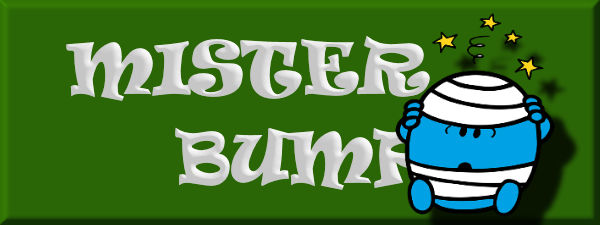
This is my response to Michele’s Soundtrack Tuesday question over on Songshine, where she asks us to:
Give a good example of art reflecting politics.
I grew up in the Eighties. Basically, that was the decade where it all ramped up. Pressure had been building previously, but the Eighties paved the way for the fall of both Apartheid and the USSR – the two biggest positive events in my lifetime.
A lot of that was down to art. Music, in particular. Just in raising public awareness, and appealing directly to people’s sense of justice. Punk was almost there in the Seventies. It was on-message, but the music was generally rubbish. It’s a sad indictment that the only punk bands we remember today are those who sang about… nothing in particular. When so much was said. By the Eighties, a few bands were not only on-message, but producing appealing music.
Regarding the Cold War, there is Sting’s wonderful Russians, which I’ve aired before and which reminds us that all those people on the other side of the curtain had exactly the same fears that we had. Superb! But, to be honest, my all-time favourite political track was aired just last weekend on SongShine (here). Labi Siffre’s, Something Inside So Strong.
The thing about So Strong is the message. Specifically, it’s not a “woe is me” track, but more directly “give me equality, or I will take it”. There is a veiled threat in there. An easy way, or a hard way. But either way, we’re making this journey to pluralism.
Which is exactly the message we should aim for, I think. I’m not a pacifist and it is exactly as Malcolm said all those years ago – By Any Means Necessary. And, with the benefit of hindsight, that’s exactly how both the Soviets and the Afrikaners fell – internal pressure had been there all along but they imploded largely due to increased external pressure.
Incidentally, it is the anniversary of Sharpeville next Monday. My featured image shows the graves of the victims – so there you are. Visual art, too,and nothing more political than the graves of unarmed protesters. One of the nails in Apartheid’s coffin was people like me taking heed of such crimes.
Quickly, before I finish, I want to say something about anti-heroes, because they can say a lot about politics, too.
I tried watching Pride and Prejudice again last night. I’ve tried many times before, tried reading it when I had the eyes, but I’ve always given up, though any English teacher will tell you it’s a classic, and modern adaptations bring the language up to date. I know, I know, these people wrote the time they were living, but frankly, it offends me deeply on a few levels. To see the wealth divide, that a very few people lived in such opulence while the rest were nothing, to see the absolute nonsense of “society”, and most of all that a woman is nothing more than a baby machine. That her main goal of life is to find a guy who’ll have her, and produce his heirs.
Austen’s novel was written around the turn of the nineteenth century and is set contemporaneously. It’s all Napoleonic. I mention it simply because something 200 years old still has immense political relevance today, but just in terms of antithesis – how not to be. Maybe instead we should try Dostoyevsky’s House of the Dead, a semi-autobiographical account of his experiences in a Siberian gulag, way back in the days of the tsar? That book, in a nutshell, will explain why there was a revolution in Russia, and authors like him, Orwell and Nietzche have done more for my politics than I think Austen ever will.
So Strong is far and away my ultimate political track, but I’m not going to air it again so soon. Here is another, bang-on Apartheid anthem, by Eddy Grant. Powerful images in the vid, too. Enjoy.

The two events you describe fall of the Soviet Union and apartheid happened from inevitability I think. I was a political science major in college right at the time these two events happened. The effects of apartheid are still felt today and now look what is happening in Ukraine
There’s a song by Donna Summer that is brilliant on apartheid
LikeLike
There’s two things, 1. Getting rid of a bad regime, and 2. replacing it with something better. It’s easy to do the first, nigh on imopossible to do the second. I thought SA might have had it with Nelson, but sadly he was a one-off.
I know this song but by a different artist. Dunno who.
LikeLiked by 1 person
Pat Benatar did a version too
Mandela I think was too old to govern and he couldn’t begin to solve the devastation created by apartheid and aids spread rampantly in the late 1980s and early 1990s there
LikeLiked by 1 person
I think Mandela showed SA the easy (easier) way, but you’re right, he was not around for long enough to see it through. Nobody since him has come close.
It makes me sad that we have lost that generation of wonderful statesmen. Mandela but also people like Tutu. People who lived through enough of apartheid to actually develop pity for it.
LikeLiked by 1 person
It boils down to leadership and SA is a country of colonialism and until it can get away from that and advance equality I think it will continue to be in turmoil but look at Ukraine now a peaceful country with s good leader who is powerless to stop s bully from invading
LikeLiked by 1 person
Ah, Jon and Vangellis. Of course.
LikeLiked by 1 person
I loved Chariots of Fire by Vangelis
LikeLiked by 1 person
We have an album of theirs. It’s all good.
LikeLiked by 1 person
Oh my word Pete I loved reading this post. I’ve been off the radar for months and decided I must get back to WordPress and the first post I read now that’s I’m back…. what a great read (related to my neck of the woods!). Thank you for this great read
LikeLiked by 1 person
Thanks Bron. All those years I bet you wondered whether anybody cared. We did.
LikeLiked by 1 person
Very well written. Not a single thing I’d take exception with .. except that bit about Punk – I still listen to Billy Idol from time to time.
LikeLiked by 1 person
Sorry Misky, but he’s a prime example. He’s pleasant enough, yes, but what did he ever sing about that mattered?
LikeLiked by 1 person